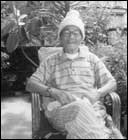 A month and a half after Man Bahadur Rai and the rest of the retreating Gurkhas left Burma they reach Nagpur in India. They are delighted with fresh rations, new uniforms and their first bath since they began their march. Rai estimates that nearly 10 Gurkha battalions have been wiped out. His story is part of Lahurey ko Katha, a collection of memoirs based on oral testimonies of 13 retired Gurkha soldiers, translated from Nepali by Dev Bahadur Thapa.
A month and a half after Man Bahadur Rai and the rest of the retreating Gurkhas left Burma they reach Nagpur in India. They are delighted with fresh rations, new uniforms and their first bath since they began their march. Rai estimates that nearly 10 Gurkha battalions have been wiped out. His story is part of Lahurey ko Katha, a collection of memoirs based on oral testimonies of 13 retired Gurkha soldiers, translated from Nepali by Dev Bahadur Thapa.
We descended three or four miles down the Indian border when we saw the road leading to Manipur. We could see a caravan of human beings and mules below. A group of British soldiers were on the march with their belongings laden on the animals. When we finally arrived in Manipur we had to beg for food as the government had made no arrangements for rations. We somehow managed to procure food from one place or the other in the village. Some did not wait for the rice to cook and ate it raw. This led to another problem: diarrhoea. I, for one, escaped it.
A gate had been put up at the 105-mile post where high-ranking officers such as colonels and captains conducted verifications. As soldiers poured in, they checked identification cards to make sure no one with false papers came inside. They let in those who had genuine ID cards and threw out those who did not have them, even though they were army personnel.
All sorts of people came there: Gurkhas, Indians and scores of others. In Burma, there were Bahun, Chhetri, Rai and Limbu villages and so women and children were also in the camp, although they were put aside. On arrival, everyone was given two meagre handfuls of ration. There was no shelter even for the troops. Those who died there were buried in shallow holes and covered with sal leaves. The smell was unbearable and we feared the possibility of a cholera epidemic.
As the troops arrived, people fled, leaving behind cows, buffaloes and goats. It's likely that our forerunners had done some looting. Quite a few of the troops, on the pretext of killing stags, killed buffaloes for meat. The buffalo meat caused dysentery. We went down to Dimapur in groups and then after that to Nagpur. There we finally felt a regimental atmosphere. We were provided with government scale rations. They provided us one uniform jacket, clothes, books and so on. There was a small stream and since we were issued soap we decided to bathe before we wore our new uniforms. Afterwards, there was a layer of lice in the water because after our departure from Burma we had no chance to bathe or wash our clothes. It had taken a month-and-a-half to get here.
There were approximately 1,000 troops at Nagpur at the time of our arrival. The number was only 375 as we approached the gate but once we got in, the personnel from other units were also taken in and our numbers swelled. All the hardships we had undergone became a matter of the past. Everything including mugs, towels and plates were all new. We were given a full mug of tea each. A song blared from the loudspeakers and each of us was given a packet of biscuits that was eaten with relish.
We spent about 15 days there. Since no tents were provided for, we had to sleep under the sal tree. All of a sudden we were shifted from Nagpur to Hoshiyarpur in Punjab where we were posted for three years. Survivors from the Burma war came in waves of sometimes 15, once 100. From 12 battalions we were barely enough to raise two. I have no idea how many people perished in the Burma front. From the Gurkhas alone, my estimate comes to the equivalent of 10 battalions.
After another three-year training we were once again sent to Burma. En route we came to know that the Japanese had taken prisoner 1,400 of our troops. Meanwhile, the Americans had broken through and some of our old comrades were among those who escaped. When they came out they were beyond recognition even though some of them were in the same company as us in the past. Food, including meat, was taken from Dumdum airport in Calcutta and air dropped to the troops. Some of it was intact but others were damaged when the packages broke during landing. Japanese planes were a menace, the paradropping had to be done on the sly.
Once we broke through the lines, we started marauding the Japanese. Yet in a sense we refrained ourselves from killing. We cleared the jungle of those hiding inside and finally reached Burma. We cleared Burma of all these infiltrators and then retreated. Clean sweeping of the Japanese would not have materalised. A significant thing happened in the meantime. King Hirohito of Japan, in view of the destruction caused by the dropping of atomic bombs at Hiroshima and Nagasaki, and in order to check further killing, broadcast their surrender. We heard about it later. We also heard that the top ranking Japanese officers including generals and colonels had committed suicide. (Concluding chapter next fortnight.)


